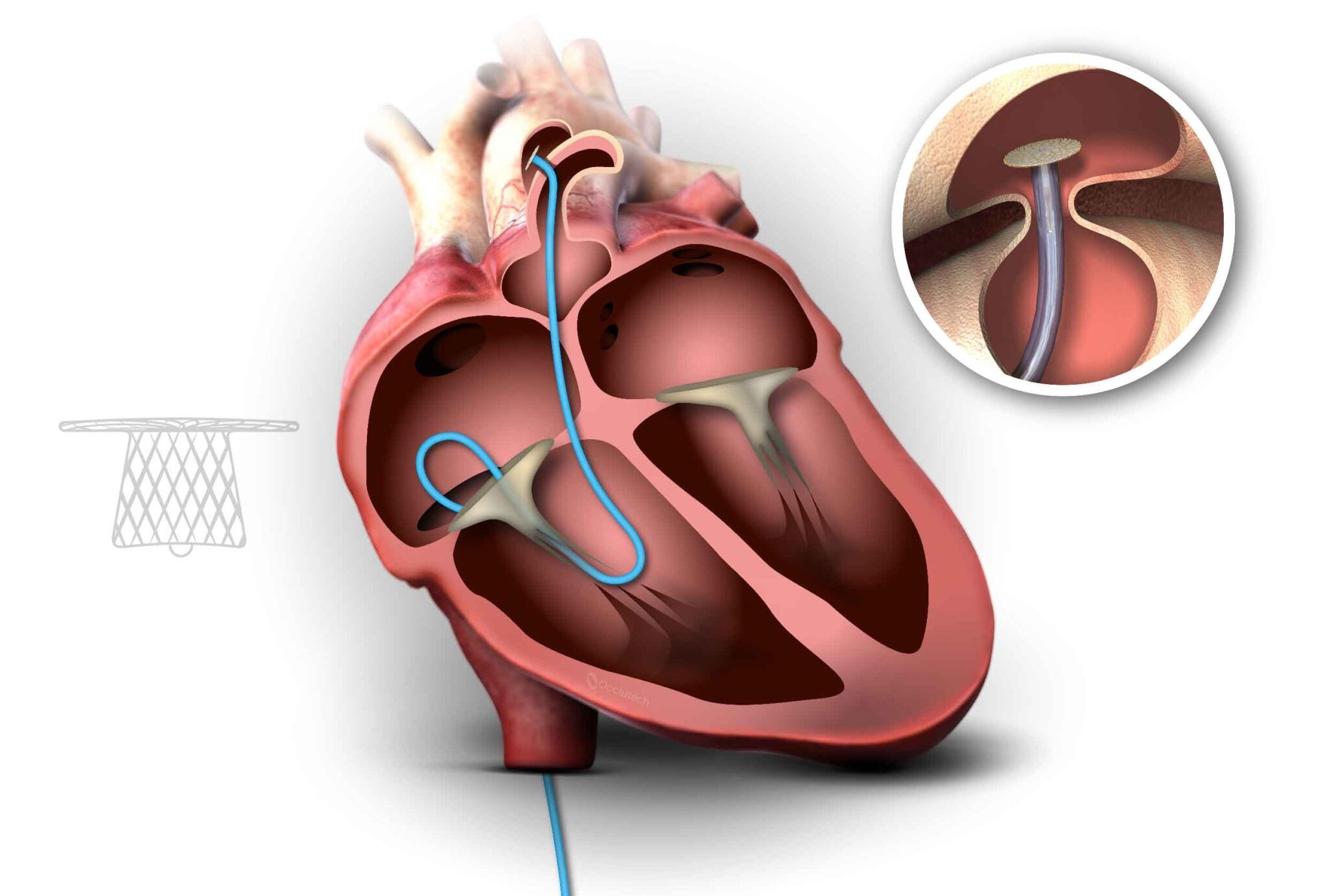Treating a hole in a child's heart without surgery
It’s like flying a kite, quips cardiologist Dr Saleem Akhtar
This procedure is not for the faint of heart. Dr Saleem Akhtar threads a thin, thin tube or catheter through a vein in five-year-old Shayaan’s leg and sends it all the way up to the boy’s heart. Then he dispatches a tiny device that looks like a mesh tea-strainer umbrella through the tube. It heads to the hole in the child’s heart and plugs the leak by sitting like a lid against the problematic opening.
The fancy way to describe this hole in the heart is “Patent ductus arteriosus” or PDA. It is an extra blood vessel found in babies that should shrink and close on its own in the first few days after birth. If it stays open longer, however, it causes extra blood to flow to the lungs.
“This is why children have trouble breathing,” explains Dr Saleem Akhtar. “That is why we need to close this opening.”
 The Occluder device plugs the hole. Credit: Occlutech.com
The Occluder device plugs the hole. Credit: Occlutech.com
He does it with the PDA occlude device, which is the umbrella-like disc. It has a screw where the cable is connected. The cable comes up the leg in the catheter or tube that is threaded into the body through the leg’s vein. “The catheter is a cable delivery system. It’s like flying a kite.”
When the PDA device is put into position, it is unscrewed and released. There are two reasons why it won’t budge: The pressure of the blood pulsing will push and keep it in place. And the cardiologists use a device that is slightly larger than the opening.
“It is a one-time procedure, lifelong resolution,” Dr Saleem says. “All that is left is a small prick [on the leg].”
Five-year-old Shayaan had initially sought treatment because he had trouble breathing two years ago, according to his father Mohammad Ali. He had a fever and the doctor told him Shayaan had a cardiac problem. He then brought Shayaan to AKUH all the way from Hub Chowki in Balochistan where the family lives.
He was delighted it had all gone so well so quickly. “We came a week ago,” says Mohammad Ali. “And now we’re going home tomorrow.”


